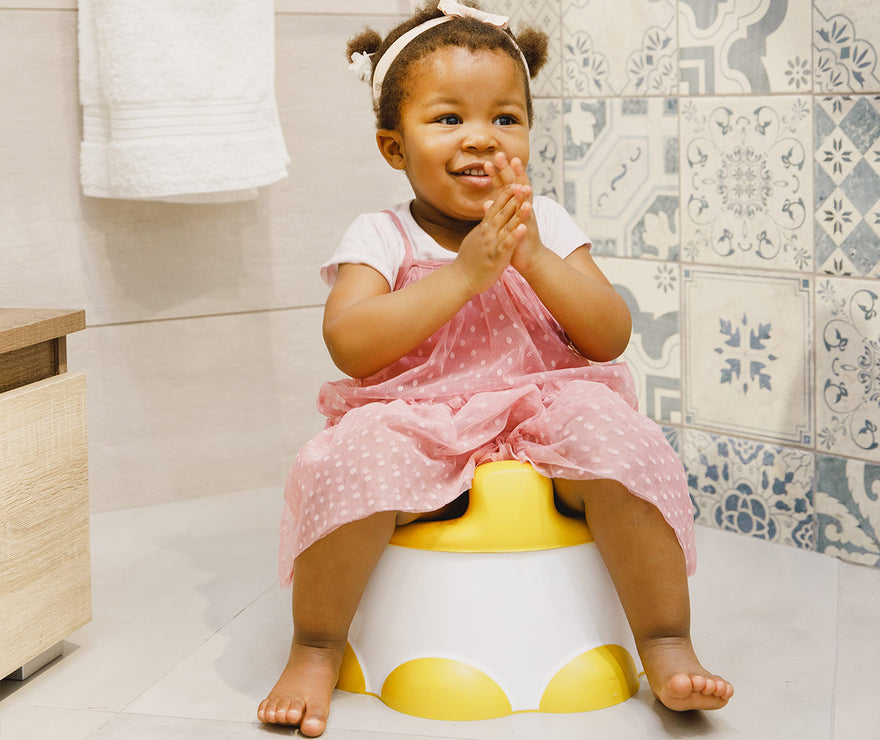Potty Training Tips

Since every toddler is unique, there is no set age at which toilet training should start.
Only until your toddler is able to regulate her bladder and bottom muscles can she be potty trained. It is normally advised to wait until she is at least two years old to begin toilet training because these muscles develop between 18 and 36 months.
Choose the Right Moment
Prior to beginning formal training, having a potty that is readily accessible and visible in the bathroom will give your child time to get comfortable using it periodically as well as sitting on it. Your little one must also have muscle control, other signs that may indicate she is ready to begin include:
- Her ability to sit down on a potty and get up easily
- Her ability to tell you when she has the urge to go
- Her ability to sit down on a potty and get up easily.
- Her ability to tell you when she has the urge to go
Rushing to potty train your child could just make the process longer. Studies show that many children who begin potty training before 18 months aren't completely trained until after the age of four, whereas those who started at around age two were completely trained before their third birthday.
Nappies to Underwear Change
Here are a few signs that your child might be ready to try underwear:
Without your help, she's beginning to try to take off her pants and nappy.
She will tell you that she has to urinate or have a bowel movement even while wearing diapers because she has observed you or other family members using the restroom. Before taking a bath in the evening, she sits down and tries to use the restroom.
You can consider moving on to underwear when you have signs that your toddler understands what will be expected of her once she stops wearing diapers. Make this a memorable event by informing her that she will now be wearing big kid underwear.
Developing a Routine
You will need to remind your child on a daily basis that she might want to go potty. If you put her on the toilet before she says "yes," she won't be able to draw the necessary conclusions for herself. Applaud her efforts and accomplishments, and if accidents occur, softly remind her that this is why the potty is there, change her, and don't cause a scene. If you react badly, she can become resentful and reluctant to try again.
Traveling While Potty Training
Toilet training while traveling can be difficult, but it is doable. Before you leave the house, have your child use the toilet. Once you get at your destination, be sure to look for restrooms. You might want to think about using a nappy to prevent accidents on very lengthy travels where there isn't likely to be a bathroom.
The importance of patience and the fact that every toddler develops at a different rate should be emphasized once more. To educate your child that acquiring new skills is enjoyable and powerful, which is a terrific life lesson, try not to rush this stage and let her go at her own pace.



